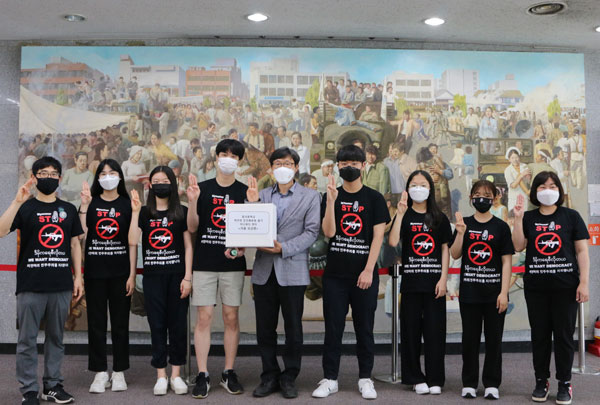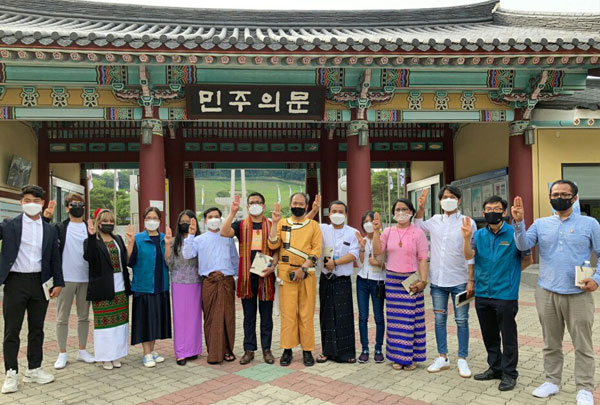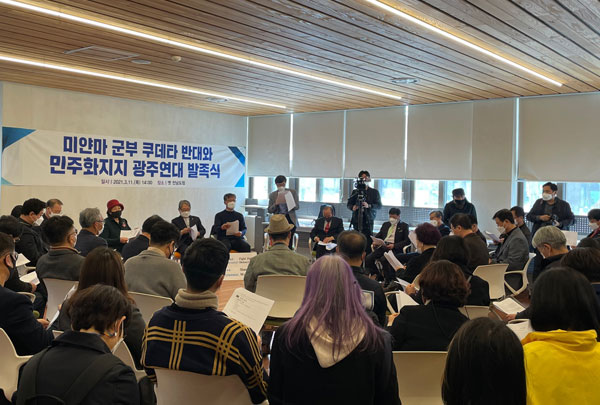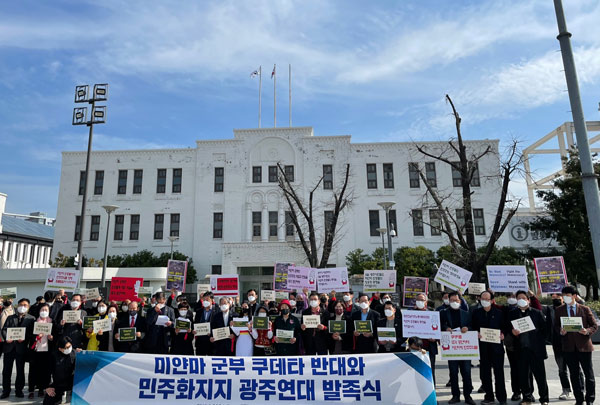Why is Gwangju Outraged at the Myanmar Crisis?
Lee Gi-bong
The General Secretary of the May 18 Memorial Foundation
The coup d'état in Myanmar came as a big surprise to the citizens of Gwangju, Korea. News clips of brutal suppression against citizens who took to the streets in aspiration for democratization and hundreds of innocent citizens shot dead were a reminder of what happened in Gwangju 41 years ago and Gwangju citizens fell into a state of shock. Young people in Myanmar who risked their lives to take part in protests made them think of what they did back then. Mothers in Gwangju saw themselves in those young women in Myanmar as they also turned to the asphalt-covered streets 41 years ago to let the world know the unfair death of their family members. The outcry of Myanmarese youth, “How many more people should be killed until the UN and the international community take actions?” engulfed us like a big wave.
What can we do?
From a statement to criticize the military coup d'état to the Pounding of Pots and Pans Protesting by people pounding pots in support of Myanmar's democratization, protests by Myanmarese workers and foreign students at the Union Square, writers' poems relay in solidarity, cultural actions by cultural artists, and to citizens’ one-man protests and collective actions, such efforts led to the launch of the Myanmar & Gwangju Solidarity. It is joined by over 130 groups including civic groups, organizations related to the May 18 Gwangju Democratic Uprising, young people and religious groups. Ordinary citizens actively participated in fundraising to help Myanmar.In just one month, 130 million won was raised to help Myanmar's struggle for democracy. Children brought their piggy banks, middle school students donated proceeds from flee market, high school students sold Myanmar coffee and donated profits. Contributions were sent from all walks of life, including village councils, public servants at district offices, multicultural families and religious groups from across the country and even overseas. As the first round, the Myanmar & Gwangju Solidarity decided to send 51.8 million won out of the fund in order to support the democratic movement in Myanmar.

Myanmar military seeks to understate the death toll.
However, the Myanmarese military has understated the death toll in an attempt to hide the truth. The massacre of civilians was the result of the military’s quest for power but they labelled the rallies as an uprising instigated by some dissidents. They criticized “The Assistance Association for Political Prisoners (AAPP) has exaggerated the number of deaths posted on its website without citing the source. Spreading false information, as such, incites riots." It also said, “The military will not sit back and watch but take stern actions against AAPP,” indicating possible retaliatory moves. AAPP shared the status of the military’s brutal suppressions and the massacre of citizens in real time and announced 726 people were killed from February 1 to April 15. During the same period, however, the military announced 258 people died, which shows the serious distortion of truth by the military.Another Wai Moe Naing and Taija San to emerge
Myanmar's military is all out to arrest the leaders of resistance forces. Recently, they arrested Wei Mo Naing in and charged him with a murder. They also put up a huge bounty on Taija San in Mandalay in a bid to arrest him. Taija San is the one who staged a protest against the coup d'état for the first time and played a key role in spreading protests nationwide. However, Myanmar’s Spring Revolution was not initiated by the two leaders, Taija San in Mandalay or Wai Moe Naing in Monywa. If brutal suppression by the military continues, more people will certainly follow in the footsteps of Taija San and Wei Mo Naing.
Commemorate the 41st anniversary of the May 18 Democratic Uprising with activities to support Myanmar's democratic movement
As May 18 draws near, efforts to support Myanmar are picking up pace. Civic groups are planning various campaigns and events, and the May 18 Memorial Foundation is preparing a session on the Myanmar crisis at the Gwangju Democracy Forum. The Commemorative Event Committee for the May 18 People’s Uprising and the Myanmar & Gwangju Solidarity are going to invite representatives of Myanmarese groups and foreign students in Korea to create opportunities to promote solidarity and unity and let them see and participate in activities aimed at supporting Myanmar’s democracy which will take place across Gwangju, including the sites related to the May 18 Democratic Uprising.



